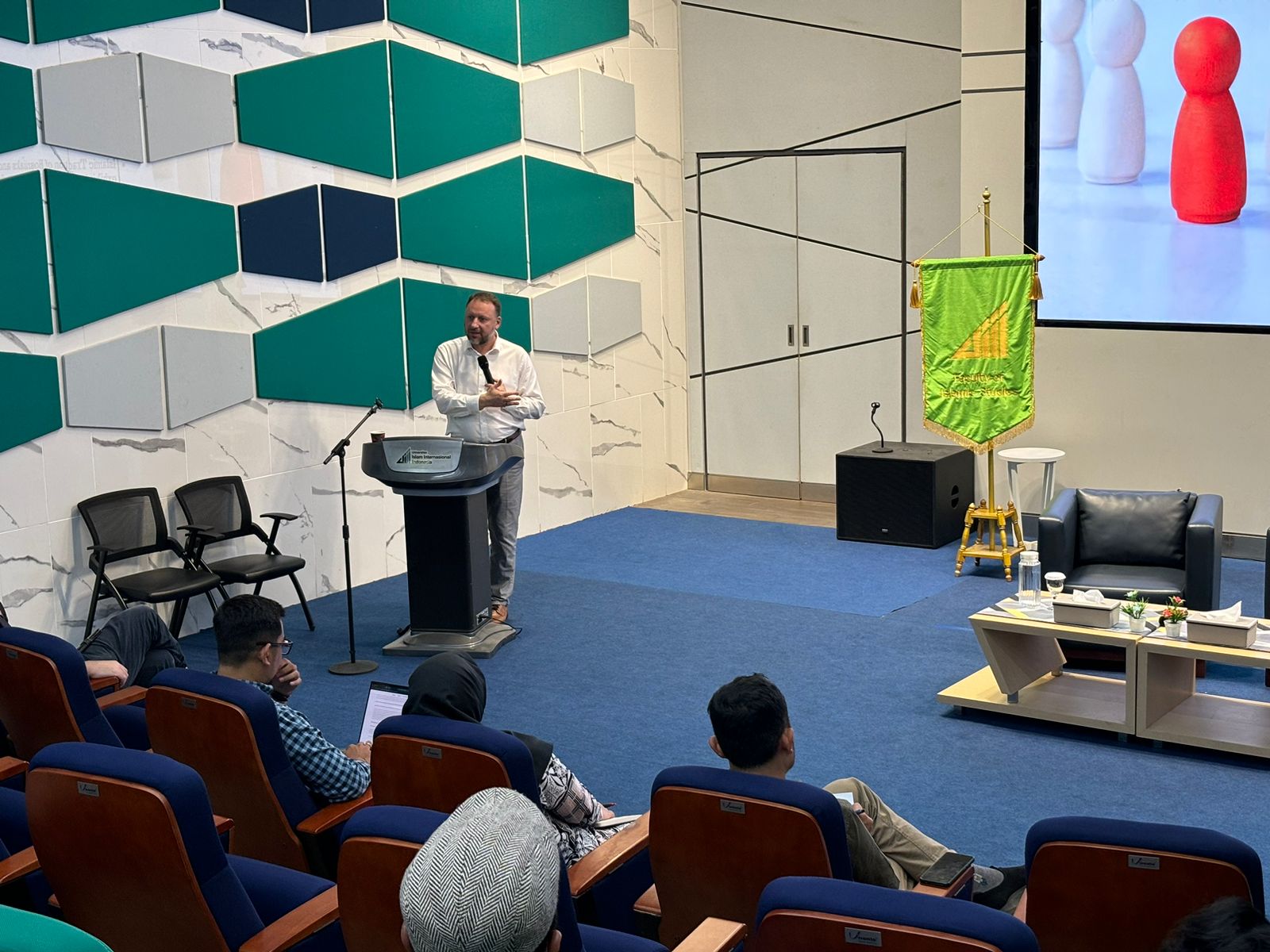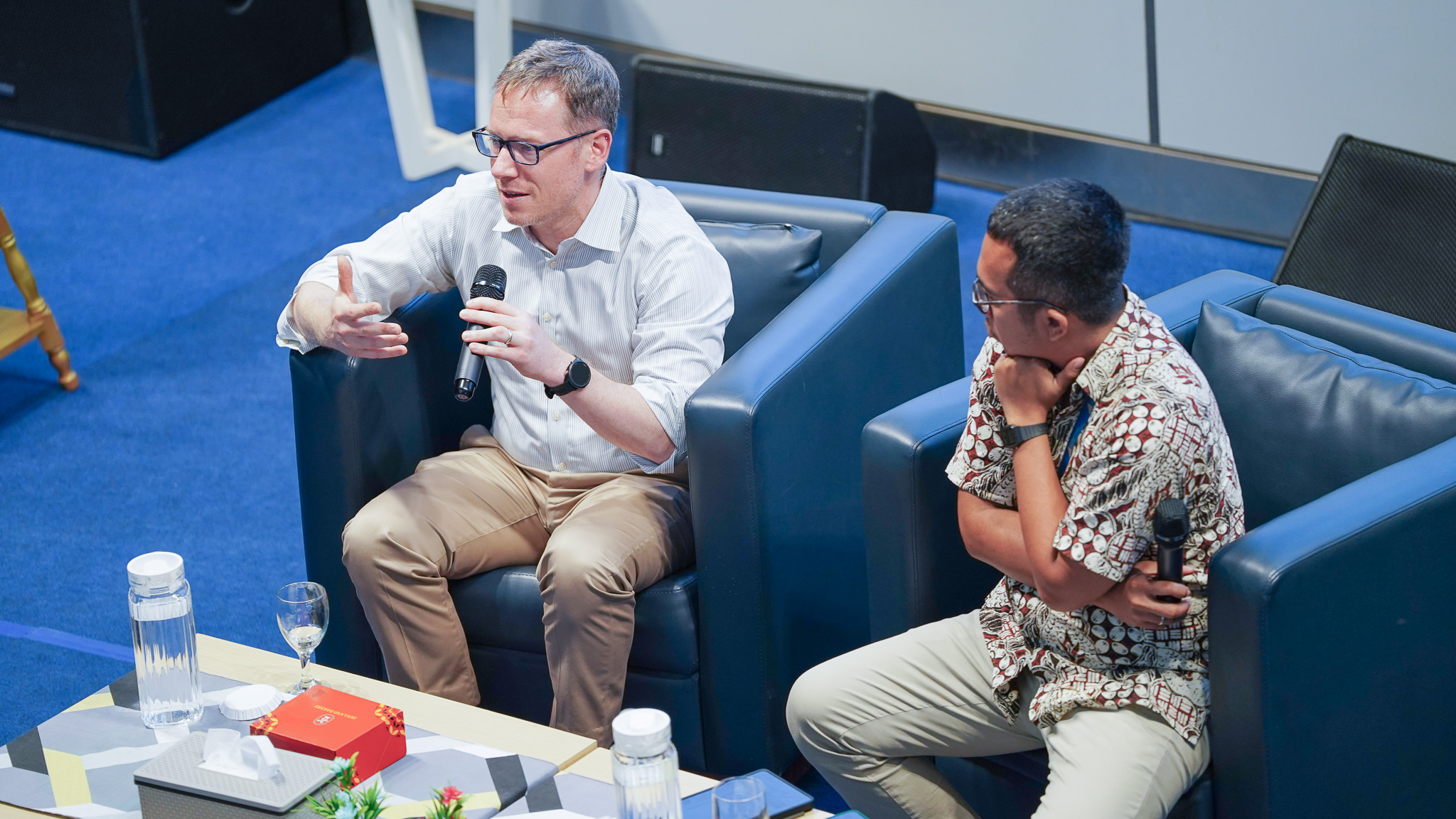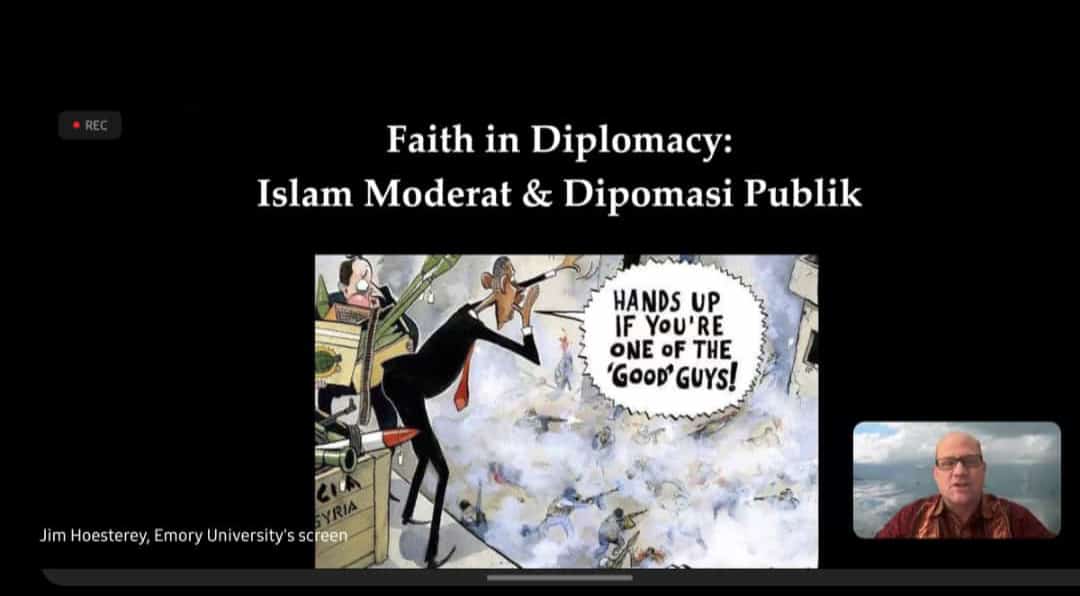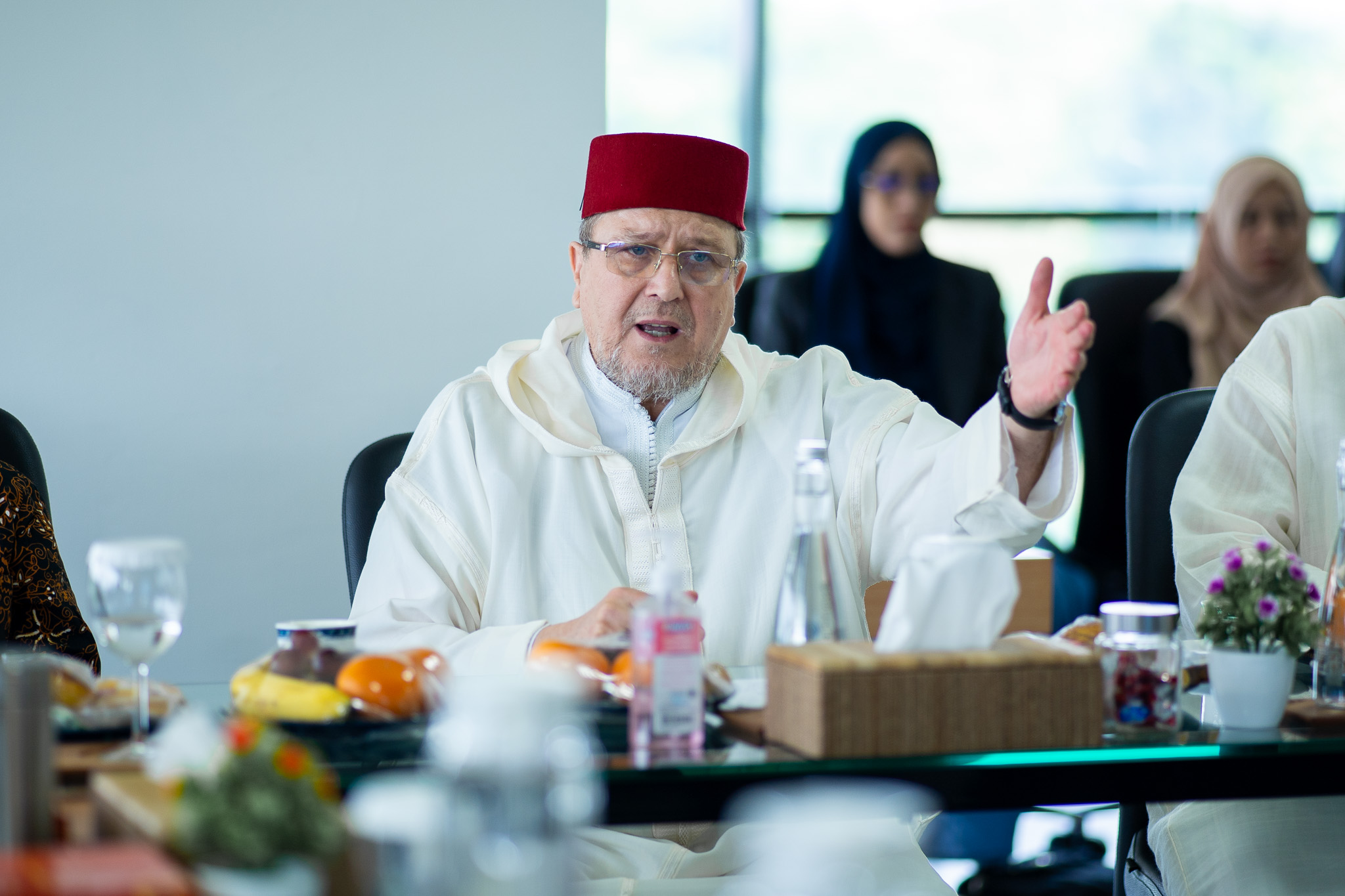Localizing Islam in a Globalizing World: Dr. Ermin Sinanovic’s Lecture at UIII
June 08, 2024Contributor: Supriyono | Editor: Dadi Darmadi

UIII, DEPOK – The Faculty of Islamic Studies at the Universitas Islam Internasional Indonesia (UIII) organized a public lecture on June 6, 2024, with a topic ‘Localizing Islam in a Globalizing World’ delivered by Dr. Ermin Sinanovic, a renowned Islamic scholar and Executive Director from the Center for Islam in the Contemporary World (CICW) at Shenandoah University in Virginia, USA.
Dr. Sinanovic focused his lecture on the comparative case studies between Indonesia and Bosnia and Herzegovina (BH) particularly in the contexts of ‘Islam Nusantara’ developed by Indonesia’s and the world’s largest Muslim organization Nahdlatul Ulama of Indonesia and the Islamic Tradition of Bosniaks.
He began by highlighting the importance of comparing the two case studies, saying that despite their geographical distance—one in Southeast Asia and one in Europe, the two countries have developed two distinct, yet related, discourses on Islam, thereby exhibiting interesting differences that call out for a comparison.
“I want to make a theoretically and methodologically sound case for something like Islam Nusantara. I think we need more studies on the ushul fiqh especially in contemporary times […] In ushul fiqh they usually took a different point of view and methodology,” Dr. Sinanovic explained.
He continued by elaborating on the importance of employing a methodological approach called ‘Islam on the Edges’ which he mentioned as the approach that views Islam as full of dynamism, uniqueness, innovativeness, and adaptation. “It invites us to think of multiple essential centers of Muslim culture and religious experience that are equally important and constitutive of what makes Islam a global presence,” he noted.
Dr. Sinanovic explained that the approach of ‘Islam on the Edges’ could be both poly-centric and non-centric in its nature, saying that “In its poly-centric nature, Islam on the Edges imparts a non-centric understanding of the Muslim religion. No center or region is more critical to understanding global Islam than another.”
He further elaborated on the relevant issues in Bosnia and Herzegovina, which could be interesting to compare with Islam Nusantara. These include Muslims living under non-Muslim rule, constitutional governments, modern ideologies, and the fact that Shari’a Courts were abolished in Bosnia in 1946. In addition, he highlighted the importance of exploring the cultural expressions that each context has.
Dr. Sinanovic also outlined key features that need to be compared between Indonesia and Bosnia and Herzegovina, while highlighting the need for a rigorous methodological approach for the comparative study. The key features include the similarities and differences of Sunni orthodoxy, local customs, Islamic moderation, coexistence, and the interplay between global and local dynamics.
Dr. Sinanovic’s suggestions align with the values upheld by UIII to promote Islamic moderation or wasatiyya Islam, while emphasizing the need to explore the topic through scientific methodological approaches. UIII has the mission to improve the quality of life and way of thinking of Muslim societies by embracing peaceful Islam (rahmatan lil ‘alamin) for the whole world.
- UIII Extends Application Deadline for 2025 International Admissions
- What Does Eid al-Fitr Mean for the UIII Academic Community?
- UIII PhD Scholar Ararat Kostanian Delivers Lecture at Armenia's Yerevan State University
- Swedish Ambassador to Indonesia Applauds UIII’s Vision, Explores Future Collaboration
- Depok Mayor Supports UIII as the Green Lung of Depok and Beyond
- Depok Mayor Pledges to Build Performance Hall at UIII
- New Parking Facility Launched, Part of UIII-Sentra Medika Hospital Partnership
- Yogyakarta’s UII Won 1st FisFastFest’s Clash of Campuses
- Vice Minister of Religious Affairs Praises UIII as a Global Hub for Islamic Education
- Hurray!! UIII Wins Football Championship


